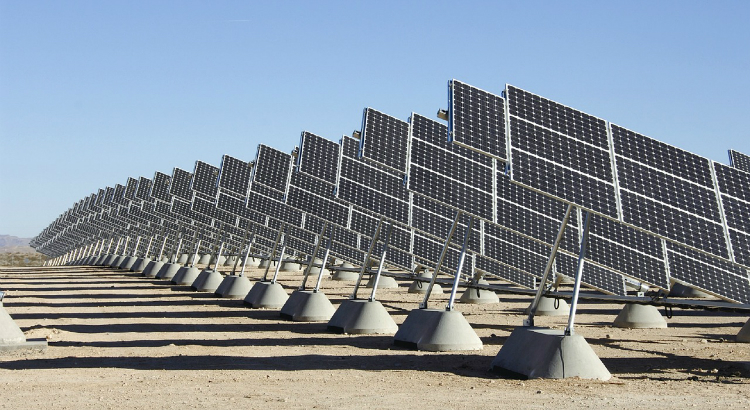Here’s a quick look at what what various industry players and the media are saying about President Trump’s decision yesterday to impose a 30 percent tariff on imported solar panels.
First some background: The White House announcement came nine months after two U.S.-based solar manufacturers blamed their bankruptcies on unfair competition and petitioned the federal International Trade Commission to impose even larger tariffs. Atlanta-based Suniva, which was founded by Georgia Tech Professor Ajeet Rohatgi is no longer manufacturing photovoltaic cells and panels. Ironically, the company is now primarily owned by a Hong Kong bank, and most of its creditors are foreign companies that supplied the materials it used to manufacture the panels. Oregon-based SolarWorld Americas is the subsidiary of a German firm.
So, here are 10 perspectives on the tariff:
U.S. Trade Representative Robert Lighthizer:
The president’s action makes clear again that the Trump administration will always defend American workers, farmers, ranchers and businesses.
 The Solar Energy Industries Association:
The Solar Energy Industries Association:
The decision effectively will cause the loss of roughly 23,000 American jobs this year, including many in manufacturing, and it will result in the delay or cancellation of billions of dollars in solar investments.
“While tariffs in this case will not create adequate cell or module manufacturing to meet U.S. demand, or keep foreign-owned Suniva and SolarWorld afloat, they will create a crisis in a part of our economy that has been thriving, which will ultimately cost tens of thousands of hard-working, blue-collar Americans their jobs,” said Abigail Ross Hopper, SEIA’s President and CEO.
Costa Nicolaou, president and CEO of PanelClaw (an American racking company):
This is a bad day for the U.S. What’s most disappointing is that the president sided with two foreign-owned companies and didn’t listen to Americans from across the country and political spectrum who understood tariffs will cause great economic pain for so many families in the solar sector.
Juergen Stein, CEO and president of SolarWorld Americas Inc.:
SolarWorld Americas appreciates the hard work of President Trump, the U.S. Trade Representative, and this administration in reaching today’s decision, and the President’s recognition of the importance of solar manufacturing to America’s economic and national security. We are still reviewing these remedies, and are hopeful they will be enough to address the import surge and to rebuild solar manufacturing in the United States. We will work with the U.S. Government to implement these remedies, including future negotiations, in the strongest way possible to benefit solar manufacturing and its thousands of American workers to ensure that U.S. solar manufacturing is world-class competitive for the long term.
Vox’s Umair Irfan:
It’s worth keeping in mind that the panels themselves are less than one-third of the final cost of a solar installation, and as hardware costs go down, the relative costs of labor, permitting, and taxes go up. The 30 percent tariff would add between 10 and 15 cents per watt to the final installed price of solar.
… But the solar industry competes on margins of pennies per kilowatt-hour, so installers are warning that this trade ruling will harm the growth of solar power in the United States due to canceled investments and reduced demand.
Bloomberg’s Brian Eckhouse, Ari Natter and Chris Martin:
… Jigar Shah, co-founder of investor Generate Capital Inc. and an outspoken advocate for the solar industry, went as far as to describe the decision as “good news.” The tariffs are “exactly what the solar industry asked for behind closed doors” to prevent a negative impact on companies, he said.
… The duties won’t be entirely devastating for the U.S. solar industry, said Hugh Bromley, a New York-based analyst at Bloomberg New Energy Finance. He estimated they’ll increase costs for large solar farms by less than 10 percent. The expense of a residential system, he said, will rise by about 3 percent.
The decision will “destruct some demand for new projects in the next two years,” Bromley said. “But they will likely prove insufficient in magnitude and duration to attract many new factories.”
Bloomberg’s Brian Eckhouse:
You’d think, as a big-time rooftop solar installer, Tesla would be a big-time loser. But coincidentally, Elon Musk’s Palo Alto, California-based company recently opened one of its so-called gigafactories in Buffalo, New York, with Panasonic Corp. The plant manufactures solar equipment.
The Washington Post’s David J. Lynch:
… Trump acted under a provision of U.S. trade law authorizing global or “safeguard” tariffs, which had not been used since President George W. Bush levied tariffs on imported steel in 2002.
The safeguard process leaves the final decision on whether to impose trade remedies to the president rather than to the apolitical trade experts who normally adjudicate trade disputes.
Ju-min Park and Stella Qiu in Reuters:
China, the world’s biggest solar panel producer branded the move an “overreaction” and said it would work with other WTO members to protect its interests.
“The U.S.’s decision … is an abuse of trade remedy measures, and China expresses strong dissatisfaction regarding this,” Wang Hejun, the head of the commerce ministry’s Trade Remedy and Investigation Bureau, said in a statement.
Akshat Rathi at Quartz:
The companies that will benefit from Trump’s tariffs are mostly not American, although they manufacture in the US. Suniva is majority-owned by a Chinese investor. SolarWorld is the US arm of a German company. Better still, three Chinese companies—JinkoSolar, JA Solar, and Longi Green Energy Technologies—were already planning to build factories in the US, which will allow them to remain in the US market.
So Chinese owners will benefit most, even if some jobs are added. In effect, Trump’s move will likely do little to decrease China’s huge advantage in solar-panel manufacturing, and might even increase it.


